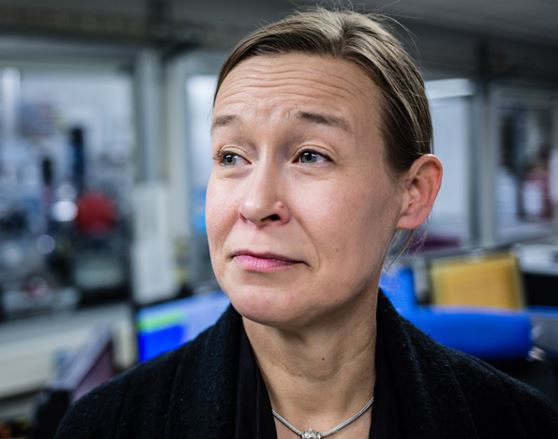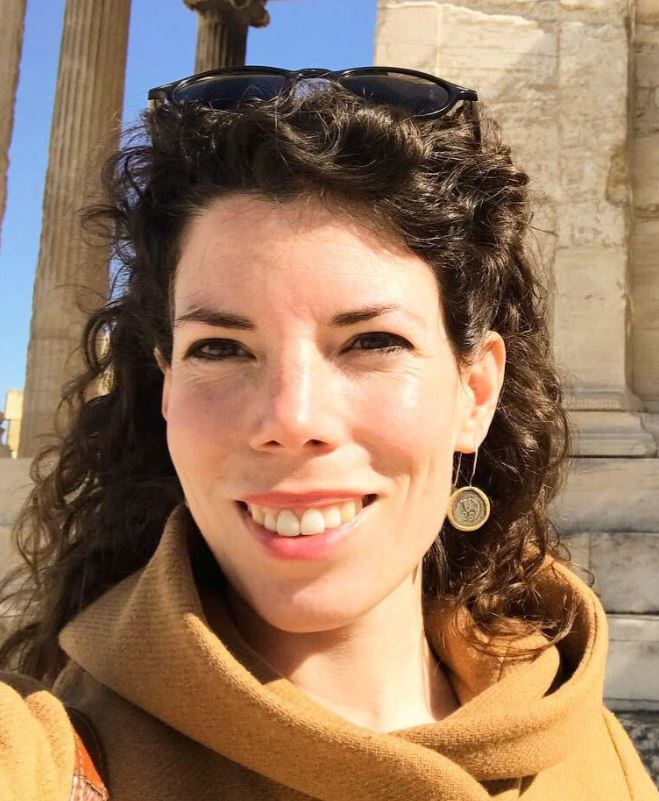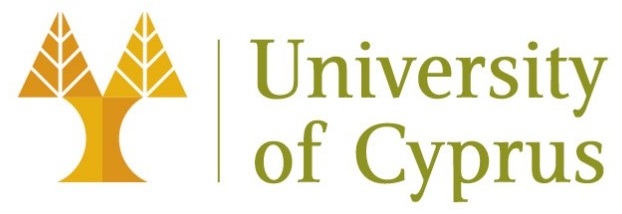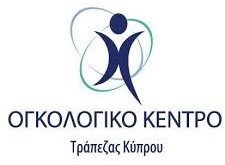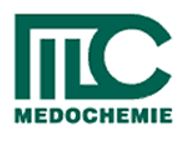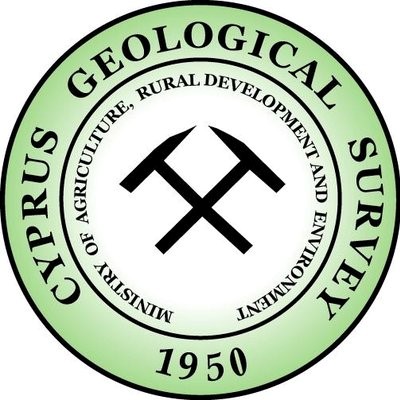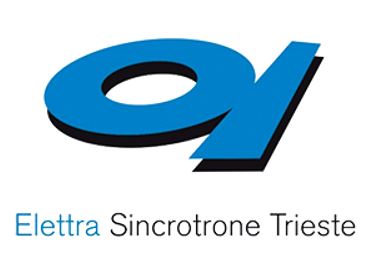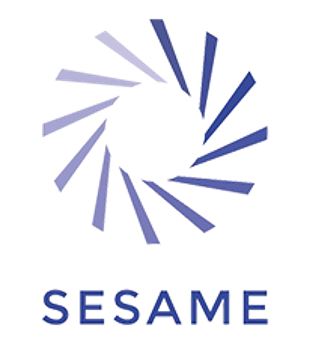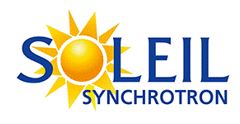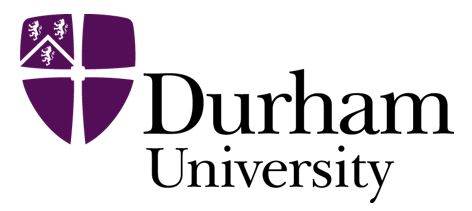
The Cyprus Institute is a non-profit research and educational institution with scientific and technological focus. It consists of issue-oriented research centres that address challenging problems both at the regional and international levels. The Government of Cyprus supports The Cyprus Institute, viewing its establishment as important to its overall policy of transforming Cyprus into a regional centre for research and education. The Energy, Environment, and Water Research Center conducts research pertinent to human health concerns (persistent organic pollutants; water; aerosols). The Science and Technology in Archaeology Research Center (STARC) is devoted to the development, introduction and use of advanced science and technologies, including the domains of human bioarchaeology and palaeopathology. Research scientists utilize CyI’s cutting edge technological and scientific infrastructures organized in stationary and mobile laboratory units (Human Bioarchaeology Laboratory; Chemistry Laboratory; USRL; STARlab, a laboratory on wheels; etc). CyI hosts high performance computing capabilities allowing research requiring intensive computing, data storage, and analyses, through its CaSToRC center. CyI researchers conduct cutting edge science on health-related issues, ranging from water to persistent organic pollutants, and from contemporary infectious diseases to human palaeopathology. CyI has a proven track record in attracting national and EU competitive funds, and has a project management support system assisting COs and PIs of large externally funded projects.
Key Personnel
Dr Kirsi O. Lorentz, the PI of BioMERA is Assistant Professor at the Cyprus Institute (PhD, University of Cambridge), and her research focuses on human health and disease in the past, through bioarchaeological approaches and palaeopathology, as well as synchrotron radiation enabled studies. In January 2017 she completed, together with collaborating colleague Dr Gihan Kamel, the first ever set of synchrotron radiation enabled studies of ancient human remains from Iran, including hair, bone and teeth, at the SOLEIL synchrotron SMIS beamline. She is currently collaborating with several beamline scientists in a number of synchrotron facilities on projects focusing on analyses of ancient human remains (hair, bone, teeth), with several beamtime proposals currently pending. In recent years she has also become interested in the evidence for procurement of maritime resources through time in Cyprus and the surrounding regions, and the human bioarchaeological evidence for repetitive aquatic activity as attested through external auditory exostoses (a bony growth in the human ear canal, a clinically proven proxy for repetitive aquatic activity). She has conducted extensive research on the occurrence, prevalence and intensity of external auditory exostoses in human populations deriving from Neolithic and Chalcolithic periods in Cyprus and is currently expanding her work on this phenomenon to the Eastern Mediterranean. The first set of publications resulting from this research are either about to, or have already been submitted to peer-reviewed journals. During the course of this research, she identified significant gaps in our current recording techniques: simple visual scoring should be augmented with digital data acquisition allowing comparisons of lesion location, size and volume, as well as ideally, internal structure. Available 3D technologies are of limited use, as they cannot reach into the negative feature of human ear canal, due to its narrowness. Further, in order to investigate other pathologies of the ear canal, the auditory ossicles, and the human auditory system as a whole, microCT technology is required. She has also been involved in collaborative research projects investigating accentuated lines in human dental enamel as evidence of stress events in the life history of an individual, as well as is currently exploring the potential to follow up on these studies using a non-destructive approach (beamtime application for SR phase contrast microCT pending). Arising from these studies, and her service as the elected member and Cyprus Representative of the SESAME Synchrotron SUC committee, she came to the strategic realization that the Cyprus research capabilities within the domains of biosciences, biomedical sciences and technology, as well as other approaches with pertinence to the study of human health, will be significantly augmented by the acquisition of a microCT, and that coupling this facility with additional capabilities and analytical modalities provided by instruments such as XRF, FTIR, high magnification digital microscopy, GS-MS, and ICP-MS, will further open the doors to cutting edge science in life sciences in Cyprus, through the use of synchrotron radiation. Her further research interests include funerary taphonomy, diagenesis, isotopic analyses (diet, residential mobility) paleoparasitology, and paleopathology. Her education included a significant component of anatomical dissection of human cadavers at the Univ. of Sheffield Medical School. Dr Lorentz has led the implementation of multi-partner and international cooperation projects, including the EU funded FP7 STACHEM (Science and Technology for Archaeology and Cultural Heritage in the Eastern Mediterranean) Project (FP7-Capacities: Research Infrastructures), of which she was the Scientific Coordinator. This project included eight international partners and was funded at half-a-million Euros, with a duration of 18 months. She was the coordinator for the RPF funded DIDAKTOR project MIDAC-OSTA, and she participated in the multi-partner international project STAR-Lab, funded by the RPF, resulting in the creation of a mobile archaeological laboratory, STAR-Lab. Further scientific, technical and managerial capabilities and experience is highlighted by her appointments in the following positions: She was the Director of the Wolfson Bioarchaeology Laboratory at the University of Newcastle during her tenure of a Faculty position there during 2004-2008. She was appointed the Chair of the Faculty Council of the STARC (Science and Technology in Archaeology Research Centre) in 2014. She was appointed the Cyprus Representative to the SESAME Synchrotron IUEC Committee in 2012, and subsequently elected as the Cyprus Member for the SESAME Synchrotron Users Committee in 2016, in which capacity she continues to serve. Significant achievements in the scientific and technological field of the proposed project by Dr Lorentz include the first ever studies of human remains from the region by synchrotron radiation enabled approaches (Lorentz & Kamel, in preparation), and 3D data capture on the external auditory exostoses (EAEs) on prehistoric Cypriot human remains, including the first identification of the condition in Cyprus, as well as the discovery of the earliest EAE evidence in Cyprus, from the early Neolithic water wells at Kissonerga-Mylouthkia. Dr Lorentz was also the first to undertake stable isotope analyses of human remains on the island.
Profile Lorentz-Cyprus Institute
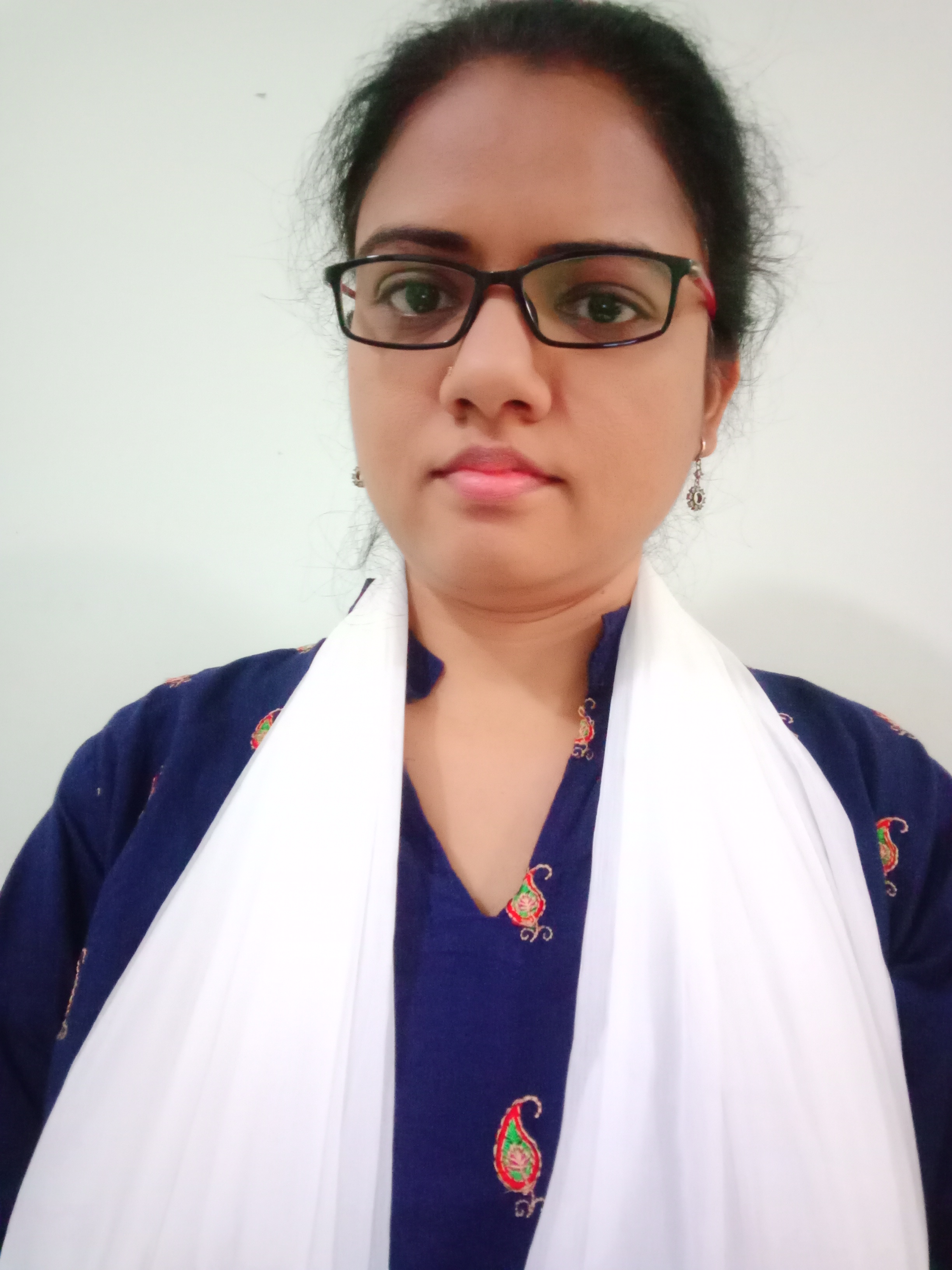 Dr Anis Fatima, Research Technical Specialist at STARC, CYI has Ph.D. in Physics (Consortium for Scientific Research, M.P, India). She utilized, novel phase contrast imaging technique for her doctoral thesis work for investigating various kinds of samples like soft tissues, composite resin restored human teeth, leaf vasculature in soybean plants and ore minerals. She has experience working with micro-focus x-ray source based laboratory set-up and synchrotron source both for defect characterization in extracted human teeth restored with composite resins and other materials using phase contrast imaging and micro- computed tomography. Her field of interest is phase contrast imaging, phase retrieval, micro-computed tomography and reconstruction. She is well versed in multidisciplinary research and has worked in collaborations with experts from various domains such as dentistry, life sciences, geophysics and biochemistry. She has several publications to her credit in international journals and conference proceedings.
Dr Anis Fatima, Research Technical Specialist at STARC, CYI has Ph.D. in Physics (Consortium for Scientific Research, M.P, India). She utilized, novel phase contrast imaging technique for her doctoral thesis work for investigating various kinds of samples like soft tissues, composite resin restored human teeth, leaf vasculature in soybean plants and ore minerals. She has experience working with micro-focus x-ray source based laboratory set-up and synchrotron source both for defect characterization in extracted human teeth restored with composite resins and other materials using phase contrast imaging and micro- computed tomography. Her field of interest is phase contrast imaging, phase retrieval, micro-computed tomography and reconstruction. She is well versed in multidisciplinary research and has worked in collaborations with experts from various domains such as dentistry, life sciences, geophysics and biochemistry. She has several publications to her credit in international journals and conference proceedings.
Profile Fatima - The Cyprus Institute
Dr Simone Lemmers, Postdoctoral Research Fellow at STARC, CYI has expertise in the areas of biological anthropology, prehistoric archaeology, bone and dental histology, cremations, microscopy and imaging. She graduated June 2018 from her PhD (Durham University, UK), with a project on stress, life history and dental development in primates. After defending her PhD she was a visiting postdoctoral researcher at the University of Kent, Skeletal Biology research Centre, followed by a visiting Postdoctoral fellowship at The Cyprus Institute funded by the Council for British Research in the Levant (CBRL). She has international collaborations with researchers from Coimbra University (Portugal) and Leicester University (UK) focussing on cremated human remains, related to biogenic alteration in relation to burial type and depositional processes. She has received recognition in her field through fellowships and grants for postdoctoral positions and research projects, including from the Council for British Research in the Levant (CBRL) and the British Association for Biological Anthropology and Osteoarcheology (BABAO). She is currently highly involved in the application of Synchrotron Radiation enabled research to a variety of archaeological sites, samples and questions. She has worked on multiple projects at the European Synchrotron Radiation Facility in Grenoble (ESRF) and SESAME, Jordan, as a team member of Dr Lorentz. These projects included the application of X-ray holographic nanotomography for studying degradation processes of human tissue and SR-microCT and SR-phase contrast microCT for studying the microstructure of both bone and dental remains in the context of pathology, stress and health in past populations. This allowed her to work with state-of-the-art research techniques and collaborate with world leading experts such as Dr Paul Tafforeau (Beamline Scientist, ESRF, Grenoble). Additionally, she and Dr Lorentz have an ongoing collaboration with Charité – Universitätsmedizin Berlin facility, Europe's largest university clinic, affiliated with Humboldt University and Freie Universität Berlin. Apart from research, she is also an experienced teacher in the fields of Osteoarcheology and Prehistory and has supervised bachelor and master students at Universities in the Netherlands and the UK and is involved in science communication through regular outreach across the UK, mainland Europe and Cyprus. This included obtaining grants via the British Council designing workshops titled ‘Science in Schools’ for high school students.
Profile Lemmers - The Cyprus Institute
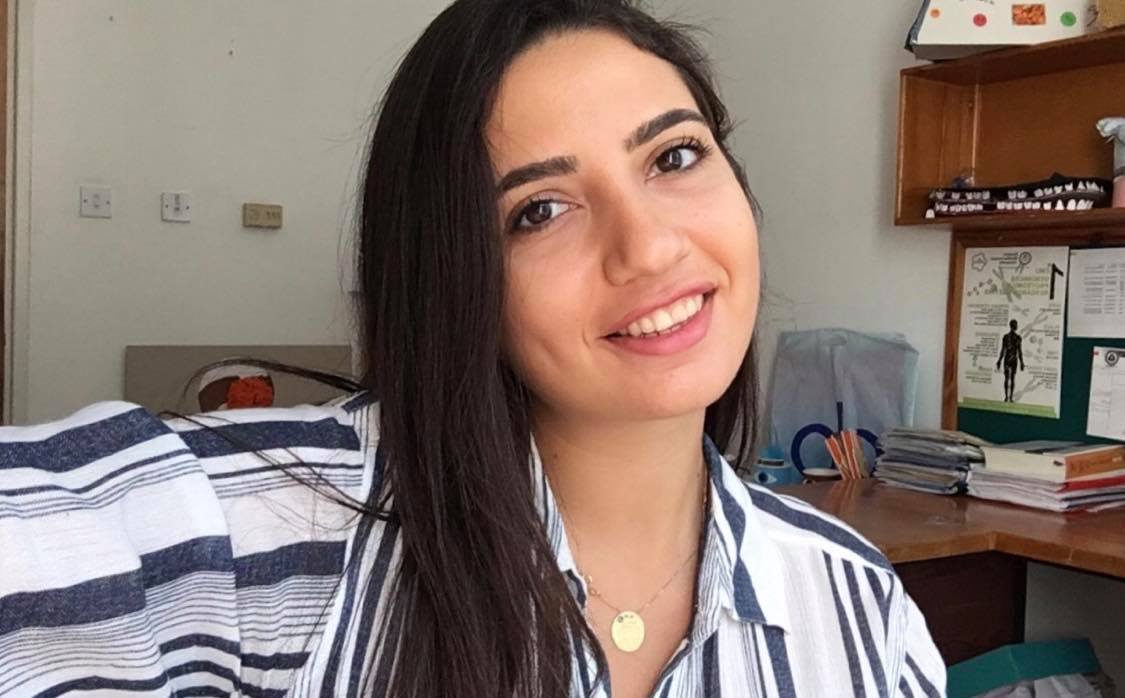
Ms Sila Kayalp is a PhD student in the Cyprus Institute. She has BSc (Hons) in Forensic Biology and MSc in Advanced Forensic Analysis from the University of West of England, Bristol, UK. She was interested in technological, scientific and instrumental approaches therefore in her MSc project she worked on developing an instrument by combining data from two analytical instruments (FC-FID with Thermal Desorption) and test if ketamine can be detected in urine faster than before. After the master degree her interest directed to Bioarchaeology. After doing a summer internship in the Cyprus Institute she decided to pursue a doctoral study under the supervision of Dr Kirsi Lorentz. For her doctoral studies she is currently working on ancient tissue remains from the 3rd millennium BCE Shahr-i Sokhta, from Anatolia, and from Egyptian mummies under the guidance of Dr Lorentz and her international collaborators. Her doctoral research focuses on characterization of the ancient skin samples from different contexts (natural desiccated; intentionally mummified) as to their alteration, using novel correlated multimodal imaging approaches. She is currently working on review paper about ancient skins with Dr Lorentz. She was participating in the application of Synchrotron Radiation on variety of samples (teeth, bones, hair, etc) collected from archaeological sites with Dr Lorentz’s team as a part of project in SESAME. These projects included the application of SR-FTIR and SR XRF/XAFS to study the preservation states and elemental compositions of bones and teeth. She is also working as a Research Assistant on BioMERA project on behalf of Cyprus Institute.
Profile Kayalp - The Cyprus Institute
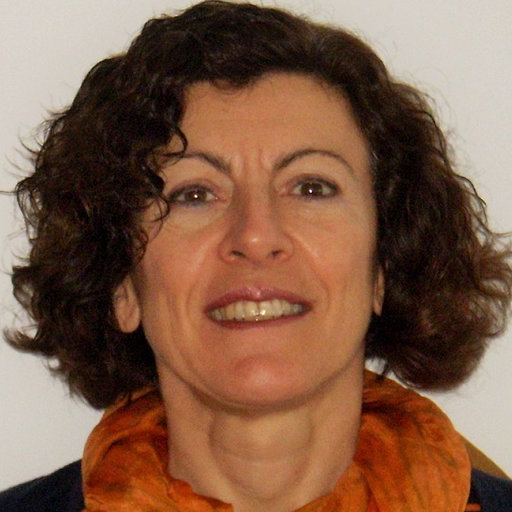 Prof. Constantia Alexandrou is Institute Professor at the Cyprus Institute. She received a BA degree in Physics from the University of Oxford in 1980 and a PhD in Theoretical Nuclear Physics from the Massachusetts Institute of Technology, USA in 1985. She held research positions at the Paul Scherer Institute, Switzerland and at Erlangen University, Germany. Prof. Alexandrou is also a Professor at the Physics Department of the University of Cyprus, where she leads the Lattice Quantum Chromodynamics (QCD) Computational Lab. She is coordinator of several research programs, has numerous scientific publications and invited talks at international meetings and has organized several workshops in Cyprus and abroad. She is the representative of Cyprus at IUPAP and PRACE. For The Cyprus Institute, she served as Vice-Chair of the Interim Governing Board (IGB) and as Chair of the IGB of the Computational-based Science and Technology Research Center (CaSToRC). In July 2010, the Board of the Institute bestowed Alexandrou with the title of 'Institute Professor'. Her research interests include Theoretical Strong Interaction Physics: Lattice Quantum Chromodynamics, Stochastic techniques for many fermion systems, Quark models, Variational methods in quantum field theories.
Prof. Constantia Alexandrou is Institute Professor at the Cyprus Institute. She received a BA degree in Physics from the University of Oxford in 1980 and a PhD in Theoretical Nuclear Physics from the Massachusetts Institute of Technology, USA in 1985. She held research positions at the Paul Scherer Institute, Switzerland and at Erlangen University, Germany. Prof. Alexandrou is also a Professor at the Physics Department of the University of Cyprus, where she leads the Lattice Quantum Chromodynamics (QCD) Computational Lab. She is coordinator of several research programs, has numerous scientific publications and invited talks at international meetings and has organized several workshops in Cyprus and abroad. She is the representative of Cyprus at IUPAP and PRACE. For The Cyprus Institute, she served as Vice-Chair of the Interim Governing Board (IGB) and as Chair of the IGB of the Computational-based Science and Technology Research Center (CaSToRC). In July 2010, the Board of the Institute bestowed Alexandrou with the title of 'Institute Professor'. Her research interests include Theoretical Strong Interaction Physics: Lattice Quantum Chromodynamics, Stochastic techniques for many fermion systems, Quark models, Variational methods in quantum field theories.
Profile Alexandrou-Cyprus Institute
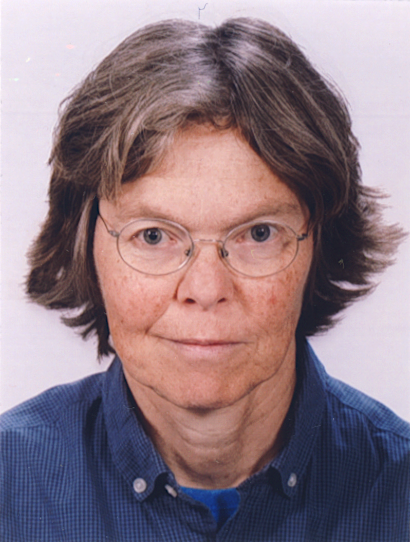 Dr Adriana Bruggeman is an Associate Professor in Hydrology and Water Management at the Energy, Environment & Water Research Center of The Cyprus Institute. She has long-term experience in hydrological monitoring and modelling, agricultural water management and participatory research. She is the head of the Water Division, an interdisciplinary group of environmental researchers, who are working on national and EU-funded water, natural resource management, rural development and climate adaptation research projects. Prior to joining The Cyprus Institute, she worked as an Agricultural Hydrologist at the International Center for Agricultural Research in the Dry Areas (ICARDA), based in Aleppo, Syria, (1998-2009). In that capacity, she coordinated and cooperated in integrated natural resource management projects with research and development stakeholders throughout the Central Asia, West Asia and North Africa region. She also worked for 10 years in Virginia, USA, on monitoring and modelling studies for assessing the impact of management practices on surface water and groundwater quality (1988-1998). Her PhD research focused on the effect of tillage practices on preferential flow through soils. She has authored and co-authored more than 40 peerreviewed journal articles (Web of Sciences h-index 11) and many other refereed and non-refereed publications. She has an MSc in Hydrology and Water Management from Wageningen University, The Netherlands, and a PhD in Biological Systems Engineering from Virginia Polytechnic Institute and State University, USA. University of Cyprus (PA1)Dr Anastasia Constantinidou is a Lecturer in Oncology/Haematology at the Medical School of the University of Cyprus. Dr Constantinidou gained Membership of the Royal College of Physicians (MRCP) in the UK in 2005, specialist accreditation in Internal Medicine in 2006 and an MSc in Oncology (Merit) from the University of London in 2010. She completed her specialist clinical training in Medical Oncology at the Royal Marsden Hospital in London in 2011. Subsequently Dr Constantinidou was awarded a Wellcome Trust Clinical Research Fellowship for laboratory research in molecular pathology and gained her PhD from the Institute of Cancer Research, University of London, in 2015. Her basic science research has focused on the identification of genes involved in the process of cell differentiation as novel targets in cancer therapeutics with emphasis on epigenetics and she has experience in translational research running early phase clinical trials. She has been awarded a number of fellowships throughout her career including the Hellenic Society of Medical Oncology Clinical Training Fellowship and the ECCO-AACR-EORTC-ESMO Fellowship in Methods in Clinical Cancer Research Workshop as well as grants from the Wellcome Trust and the Sarcoma UK. She has been a co-investigator in over 80 UK, European and International Phase I/II/III clinical trials in oncology and through competitive selection she has presented her work in many international meetings. Dr Constantinidou is a member of the American Society of Clinical Oncology (ASCO) and the European Society for Medical Oncology (ESMO).
Dr Adriana Bruggeman is an Associate Professor in Hydrology and Water Management at the Energy, Environment & Water Research Center of The Cyprus Institute. She has long-term experience in hydrological monitoring and modelling, agricultural water management and participatory research. She is the head of the Water Division, an interdisciplinary group of environmental researchers, who are working on national and EU-funded water, natural resource management, rural development and climate adaptation research projects. Prior to joining The Cyprus Institute, she worked as an Agricultural Hydrologist at the International Center for Agricultural Research in the Dry Areas (ICARDA), based in Aleppo, Syria, (1998-2009). In that capacity, she coordinated and cooperated in integrated natural resource management projects with research and development stakeholders throughout the Central Asia, West Asia and North Africa region. She also worked for 10 years in Virginia, USA, on monitoring and modelling studies for assessing the impact of management practices on surface water and groundwater quality (1988-1998). Her PhD research focused on the effect of tillage practices on preferential flow through soils. She has authored and co-authored more than 40 peerreviewed journal articles (Web of Sciences h-index 11) and many other refereed and non-refereed publications. She has an MSc in Hydrology and Water Management from Wageningen University, The Netherlands, and a PhD in Biological Systems Engineering from Virginia Polytechnic Institute and State University, USA. University of Cyprus (PA1)Dr Anastasia Constantinidou is a Lecturer in Oncology/Haematology at the Medical School of the University of Cyprus. Dr Constantinidou gained Membership of the Royal College of Physicians (MRCP) in the UK in 2005, specialist accreditation in Internal Medicine in 2006 and an MSc in Oncology (Merit) from the University of London in 2010. She completed her specialist clinical training in Medical Oncology at the Royal Marsden Hospital in London in 2011. Subsequently Dr Constantinidou was awarded a Wellcome Trust Clinical Research Fellowship for laboratory research in molecular pathology and gained her PhD from the Institute of Cancer Research, University of London, in 2015. Her basic science research has focused on the identification of genes involved in the process of cell differentiation as novel targets in cancer therapeutics with emphasis on epigenetics and she has experience in translational research running early phase clinical trials. She has been awarded a number of fellowships throughout her career including the Hellenic Society of Medical Oncology Clinical Training Fellowship and the ECCO-AACR-EORTC-ESMO Fellowship in Methods in Clinical Cancer Research Workshop as well as grants from the Wellcome Trust and the Sarcoma UK. She has been a co-investigator in over 80 UK, European and International Phase I/II/III clinical trials in oncology and through competitive selection she has presented her work in many international meetings. Dr Constantinidou is a member of the American Society of Clinical Oncology (ASCO) and the European Society for Medical Oncology (ESMO).
Profile Bruggeman-Cyprus Institute
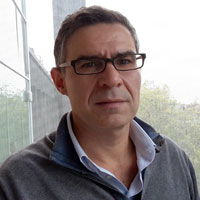 Prof. George K Christophides is an Adjunct Professor and Associate Dean at the Cyprus Institute, as well as the Professor and Chair of Infectious Disease and Immunity at the Imperial College London. He received his PhD in Molecular Biology from the University of Athens and continued his research career as a Marie Curie postdoctoral fellow at the European Molecular Biology Laboratory (EMBL), Heidelberg, Germany. He moved to Imperial College London in 2005. He is interested in the biology of infectious diseases, especially vector-borne, and how this may be affected by human interventions and the changing environment. Through his research, he wishes to contribute to public health innovations and in improving human life. In addition to directing the VigiLab, he is convening a final year course at Imperial College on Advanced Topics in Infection and Immunity and lecturing in Immunology and in Advanced Topics in Parasitology and Vector Biology courses.
Prof. George K Christophides is an Adjunct Professor and Associate Dean at the Cyprus Institute, as well as the Professor and Chair of Infectious Disease and Immunity at the Imperial College London. He received his PhD in Molecular Biology from the University of Athens and continued his research career as a Marie Curie postdoctoral fellow at the European Molecular Biology Laboratory (EMBL), Heidelberg, Germany. He moved to Imperial College London in 2005. He is interested in the biology of infectious diseases, especially vector-borne, and how this may be affected by human interventions and the changing environment. Through his research, he wishes to contribute to public health innovations and in improving human life. In addition to directing the VigiLab, he is convening a final year course at Imperial College on Advanced Topics in Infection and Immunity and lecturing in Immunology and in Advanced Topics in Parasitology and Vector Biology courses.
Profile Christophides-Cyprus Institute
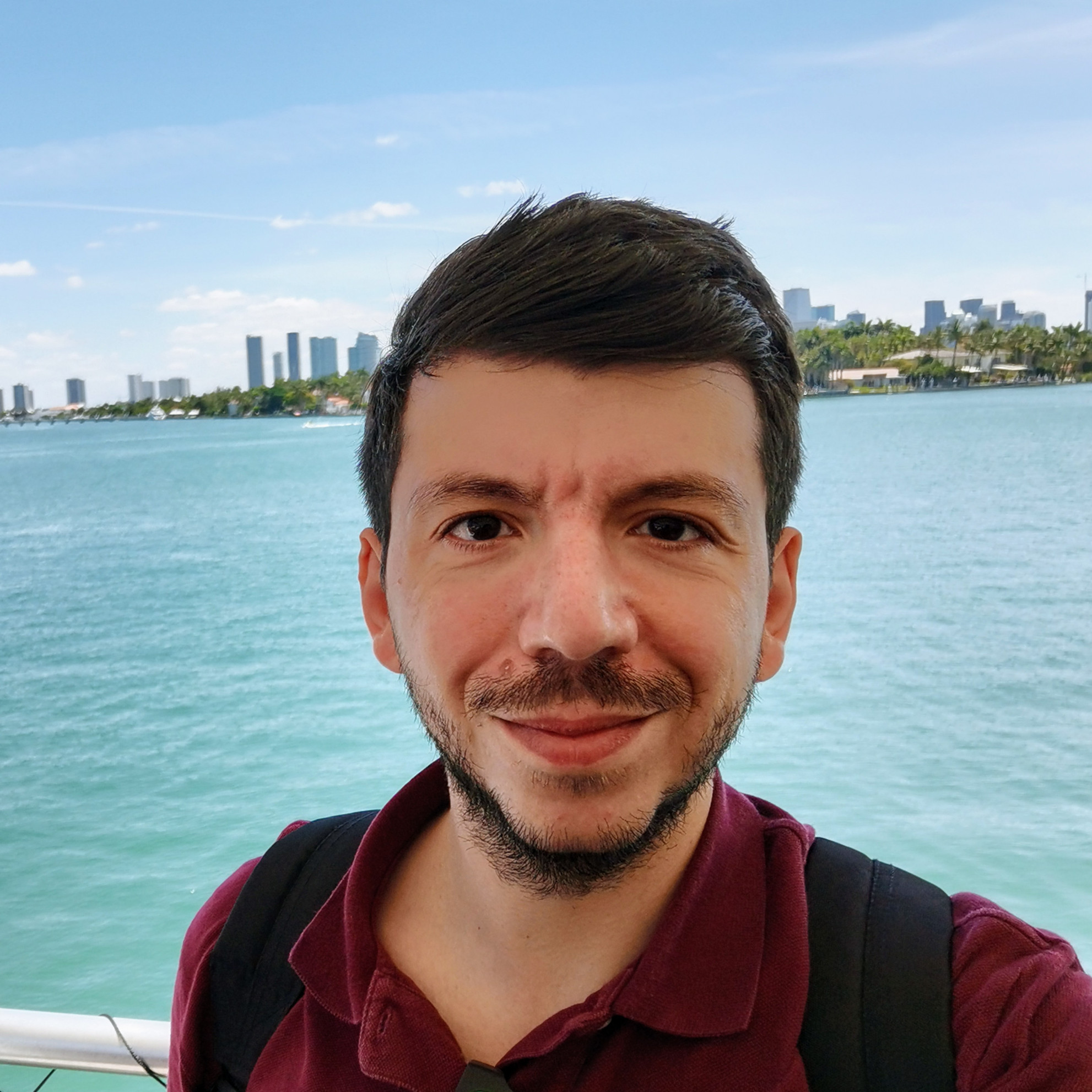 Dr Charalambos Chrysostomou is a Computational Scientists at the Cyprus Institute. Dr Chrysostomou has the following academic qualifications: PhD in Bioinformatics, MSc Computational Intelligence and Robotics and BSc Computer Science. Dr Chrysostomou is currently working as a Data Scientist at CYI, with the main aim to develop and carry out an independent and original informatics research for data analysis, storing, distribution and visualisation. He has expertise in the field of data management, storage, and data processing using both CPU and GPU infrastructures. Dr Chrysostomou gained experience as a Post-Doctoral Research Associate at the University of Leicester, and as the technical manager of the European funded (Horizon 2020) project, called ReCRED, for the Cyprus University of Technology in analysing of big data that are crucial for the proposed project. Some of these areas are the following: 1) Storage and retrieval of big biomedical data, 2) Statistical and computational analysis of big biomedical data, and 3) Whole genome sequencing using next-generation sequence analysis technologies, such as a quality assessment, read alignment, variation analysis and identification, annotation and visualisation.
Dr Charalambos Chrysostomou is a Computational Scientists at the Cyprus Institute. Dr Chrysostomou has the following academic qualifications: PhD in Bioinformatics, MSc Computational Intelligence and Robotics and BSc Computer Science. Dr Chrysostomou is currently working as a Data Scientist at CYI, with the main aim to develop and carry out an independent and original informatics research for data analysis, storing, distribution and visualisation. He has expertise in the field of data management, storage, and data processing using both CPU and GPU infrastructures. Dr Chrysostomou gained experience as a Post-Doctoral Research Associate at the University of Leicester, and as the technical manager of the European funded (Horizon 2020) project, called ReCRED, for the Cyprus University of Technology in analysing of big data that are crucial for the proposed project. Some of these areas are the following: 1) Storage and retrieval of big biomedical data, 2) Statistical and computational analysis of big biomedical data, and 3) Whole genome sequencing using next-generation sequence analysis technologies, such as a quality assessment, read alignment, variation analysis and identification, annotation and visualisation.
Chrysostomou Profile-Cyprus Institute
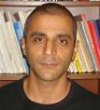 Dr Iosif Hafez is a Research Technical Specialist at the Cyprus Institute. He studied Chemistry at the University of Ioannina, Greece, and received his PhD and MSc in Material Science and Engineering from the Chemical Engineering Department at the University of Patras, Greece. His research activities and publications are focused on the development of composite materials for various applications (soil consolidation, aviation) and instrumental analyses. During the period from 2009-2013, he worked as a Lecturer at the Hellenic Air Force Academy (H.A.F.A.) where he supervised the laboratories of Material Science and Processes and Measuring Techniques. He has also held positions both as a laboratory supervisor and as a chemical analyst at the Greek Armies Air force S.O.A.P. (spectroscopic oil analyses program) and at the private sector where he conducted chemical analyses and research in various types of samples (food, environment). His research interests include composite materials and instrumental analyses.
Dr Iosif Hafez is a Research Technical Specialist at the Cyprus Institute. He studied Chemistry at the University of Ioannina, Greece, and received his PhD and MSc in Material Science and Engineering from the Chemical Engineering Department at the University of Patras, Greece. His research activities and publications are focused on the development of composite materials for various applications (soil consolidation, aviation) and instrumental analyses. During the period from 2009-2013, he worked as a Lecturer at the Hellenic Air Force Academy (H.A.F.A.) where he supervised the laboratories of Material Science and Processes and Measuring Techniques. He has also held positions both as a laboratory supervisor and as a chemical analyst at the Greek Armies Air force S.O.A.P. (spectroscopic oil analyses program) and at the private sector where he conducted chemical analyses and research in various types of samples (food, environment). His research interests include composite materials and instrumental analyses.
Hafez Profile-Cyprus Institute
Dr Evi Margar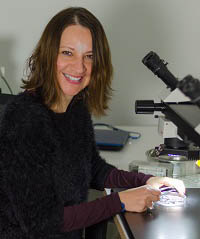 itis is Assistant Professor at the Science and Technology in Archaeology Research Center. Her BA comes from the University of Athens and her MSc in Environmental Archaeology and Palaeoeconomy from the University of Sheffield (with a scholarship from the Leventis Foundation), where she specialised in Archaeobotany. She then moved to Cambridge, as a Bill Gates Foundation Scholar, to undertake her PhD. After three post-doctoral grants in Athens, two at the Malcolm Wiener Laboratory for Archaeological Science-American School of Classical Studies and one as the Leventis Fellow at the Fitch Laboratory of the British School at Athens, she was awarded a Marie Curie Individual Fellowship at the University of Cambridge. She is one of the leading experts in archaeobotanical research in the east Mediterranean and the only archaeobotanist based in Cyprus, conducting research on plants consumed by people, as well as their health implications.
itis is Assistant Professor at the Science and Technology in Archaeology Research Center. Her BA comes from the University of Athens and her MSc in Environmental Archaeology and Palaeoeconomy from the University of Sheffield (with a scholarship from the Leventis Foundation), where she specialised in Archaeobotany. She then moved to Cambridge, as a Bill Gates Foundation Scholar, to undertake her PhD. After three post-doctoral grants in Athens, two at the Malcolm Wiener Laboratory for Archaeological Science-American School of Classical Studies and one as the Leventis Fellow at the Fitch Laboratory of the British School at Athens, she was awarded a Marie Curie Individual Fellowship at the University of Cambridge. She is one of the leading experts in archaeobotanical research in the east Mediterranean and the only archaeobotanist based in Cyprus, conducting research on plants consumed by people, as well as their health implications.
Margaritis Profile-Cyprus Institute
Dr Efthymia 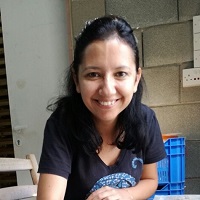 Nikita is Assistant Professor at the Science and Technology in Archaeology Research Center (The Cyprus Institute, Nicosia). She obtained a BA in Archaeology at the Aristotle University of Thessaloniki, Greece, and subsequently specialized in Biological Anthropology, obtaining an MSc and a PhD at the University of Cambridge, UK. After two post-doctoral grants in Athens (The Malcolm H. Wiener Laboratory for Archaeological Science-American School of Classical Studies, Fitch Laboratory-British School at Athens), she was awarded a Marie Skłodowska-Curie Individual Fellowship at the University of Sheffield. As part of her PhD and post-PhD research she gained extensive experience working in North Africa as a member of the Desert Migrations Project and the Trans-Sahara Project, both directed by Prof. David Mattingly (University of Leicester). In addition, she is currently in charge of the bioarchaeological research at the sites of Volubilis in Morocco and Bulla Regia in Tunisia (excavation under the direction of Drs. Corisande Fenwick, Elizabeth Fentress, Hassan Limane and Moheddine Chaouali), and she is collaborating with Dr Ronika Power (Macquarie University) in the publication of skeletal data from Sudan (Sesebi) and Egypt (Naqada, Badari, Tarkhan, Hierakonpolis). In addition, she has studied human skeletal material spanning prehistoric to Roman era across Greece and she has just completed the study of Anglo-Saxon and Late Medieval skeletal material from Leicestershire, UK. Her training includes macroscopic and digital bioarchaeological techniques, as well as dental microwear analysis, dental calculus microdebris analysis and histomorphometry. Her research has so far resulted in over 35 papers in international peer-reviewed journals and edited volumes. A number of these papers has focused on refining current osteological methods for assessing the number of individuals from commingled assemblages, testing the effectiveness of activity reconstruction methods and proposing new methods for biodistance analysis. In addition, she has co-authored the textbook on biological anthropology currently used at the National University at Athens and, at the age of 32, she authored the textbook 'Osteoarchaeology: A Guide to the Macroscopic Study of Human Skeletal Remains', which is currently in press by Elsevier (http://store.elsevier.com/Osteoarchaeology/Efthymia-Nikita/isbn9780128040218/).
Nikita is Assistant Professor at the Science and Technology in Archaeology Research Center (The Cyprus Institute, Nicosia). She obtained a BA in Archaeology at the Aristotle University of Thessaloniki, Greece, and subsequently specialized in Biological Anthropology, obtaining an MSc and a PhD at the University of Cambridge, UK. After two post-doctoral grants in Athens (The Malcolm H. Wiener Laboratory for Archaeological Science-American School of Classical Studies, Fitch Laboratory-British School at Athens), she was awarded a Marie Skłodowska-Curie Individual Fellowship at the University of Sheffield. As part of her PhD and post-PhD research she gained extensive experience working in North Africa as a member of the Desert Migrations Project and the Trans-Sahara Project, both directed by Prof. David Mattingly (University of Leicester). In addition, she is currently in charge of the bioarchaeological research at the sites of Volubilis in Morocco and Bulla Regia in Tunisia (excavation under the direction of Drs. Corisande Fenwick, Elizabeth Fentress, Hassan Limane and Moheddine Chaouali), and she is collaborating with Dr Ronika Power (Macquarie University) in the publication of skeletal data from Sudan (Sesebi) and Egypt (Naqada, Badari, Tarkhan, Hierakonpolis). In addition, she has studied human skeletal material spanning prehistoric to Roman era across Greece and she has just completed the study of Anglo-Saxon and Late Medieval skeletal material from Leicestershire, UK. Her training includes macroscopic and digital bioarchaeological techniques, as well as dental microwear analysis, dental calculus microdebris analysis and histomorphometry. Her research has so far resulted in over 35 papers in international peer-reviewed journals and edited volumes. A number of these papers has focused on refining current osteological methods for assessing the number of individuals from commingled assemblages, testing the effectiveness of activity reconstruction methods and proposing new methods for biodistance analysis. In addition, she has co-authored the textbook on biological anthropology currently used at the National University at Athens and, at the age of 32, she authored the textbook 'Osteoarchaeology: A Guide to the Macroscopic Study of Human Skeletal Remains', which is currently in press by Elsevier (http://store.elsevier.com/Osteoarchaeology/Efthymia-Nikita/isbn9780128040218/).
Nikita Profile-Cyprus Institute
Prof. Th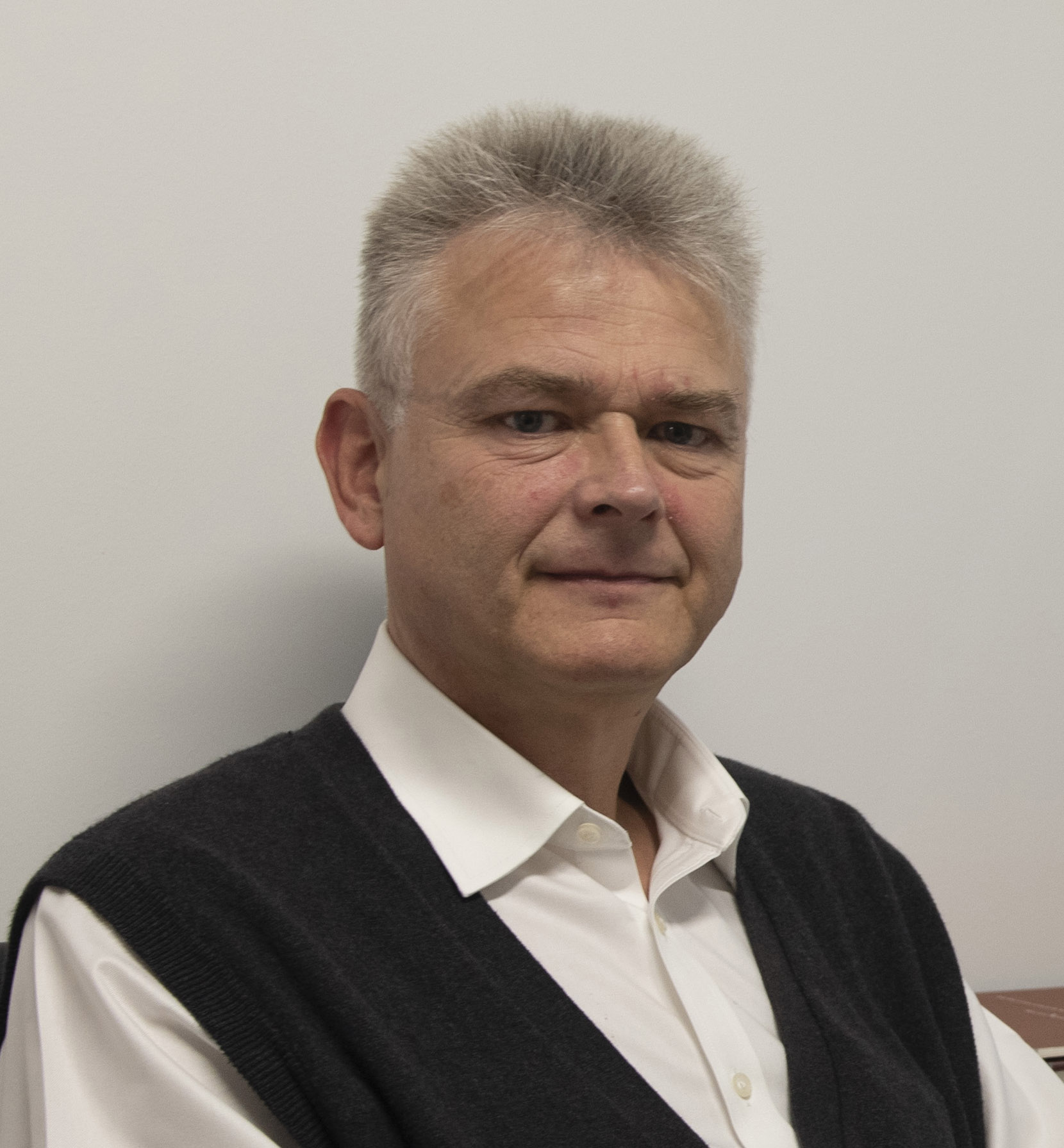 ilo Rehren is Director of STARC and A.G. Leventis Professor in Archaeological Sciences at the Cyprus Institute. He was previously Professor of Archaeological Materials and Technology, UCL Institute of Archaeology, London (1999-2017) where he built up a large research team covering ancient metals, ceramics, and glass on a global scale. For several years he also led the Institute’s China engagement, with collaborations with the Terracotta Army Museum and Peking University, among others. From 2011 to 2016 he served as founding Director of UCL Qatar, a postgraduate department focusing on research, teaching and professional development in Archaeology, Conservation, Museum Studies and Library Studies in the wider Arab World. In the 1990s he worked as a research scientist at the German Mining Museum’s then-new Institute for Archaeometallurgy, developing a wide range of expertise in mostly non-ferrous metallurgy. His Habilitation in Materials Science from the Mining Academy in Freiberg (Saxony) was on the role of crucibles in early technology (1997). He will contribute expertise on metals and mining within WP10, in connection to ancient human health.
ilo Rehren is Director of STARC and A.G. Leventis Professor in Archaeological Sciences at the Cyprus Institute. He was previously Professor of Archaeological Materials and Technology, UCL Institute of Archaeology, London (1999-2017) where he built up a large research team covering ancient metals, ceramics, and glass on a global scale. For several years he also led the Institute’s China engagement, with collaborations with the Terracotta Army Museum and Peking University, among others. From 2011 to 2016 he served as founding Director of UCL Qatar, a postgraduate department focusing on research, teaching and professional development in Archaeology, Conservation, Museum Studies and Library Studies in the wider Arab World. In the 1990s he worked as a research scientist at the German Mining Museum’s then-new Institute for Archaeometallurgy, developing a wide range of expertise in mostly non-ferrous metallurgy. His Habilitation in Materials Science from the Mining Academy in Freiberg (Saxony) was on the role of crucibles in early technology (1997). He will contribute expertise on metals and mining within WP10, in connection to ancient human health.
Rehen Profile-Cyprus Institute
 Prof. Jean Sciare is the Director of the Energy, Environment and Water Research Centre (EEWRC) at the Cyprus Institute with a full-time tenured Professor position. He is heading different research infrastructures at CyI such as the Cyprus Atmospheric Observatory (CAO; http://www.cyi.ac.cy/index.php/cao.html) and the Unmanned Systems Research Laboratory (USRL; http://www.cyi.ac.cy/index.php/usrl.html). J. Sciare received his PhD in atmospheric chemistry and physics from Paris VII University in 2000. After a postdoctoral position on the characterization of Cloud Condensation Nuclei (CCN) at the Max Planck Institute for Chemistry in 2000-2001, he has obtained a full permanent position in CNRS. He has received his habilitation in 2009 and became a Research director of CNRS in 2013, leading the Atmospheric chemistry group at LSCE (Laboratoire des Sciences du Climat et de l’Environnement, http://www.lsce.ipsl.fr/). Over the past 15 years, J. Sciare has gained a lot of experience in the management (as Project Coordinator) of many (inter)national research projects dealing with aerosol pollution and its impacts on air quality and climate (average of 500k€/year from competitive funds for the period 2010-2015). He has been strongly involved in educational activities from the beginning of his research, through the supervision of a large number of students (12 masters, 7 PhDs, 5 post-doc). H index (ISI-Web of Science, Dec. 2016) = 32; 110 peer-review publication in atmospheric sciences; citation ~3,300. Living in the ‘polluted’ and densely populated region of Paris over the past 15 years, J. Sciare has been extremely sensitive to air quality issues, human exposure and health impact of atmospheric pollution. Following his research activities in worldwide megacities, he has decided in 2010 to establish the in-situ component of the biggest French atmospheric supersite (SIRTA; http://sirta.ipsl.fr/) to monitor the sources and geographical origin of particulate pollution in close collaboration with key stakeholders (such as the governmental agencies for Energy and Environment, the French Agency for Food, Environmental and Occupational Health & Safety). In parallel, he has developed a dense regional network of collaborators and coordinated large multi-disciplinary research programs (with economists, biologists, chemists, modelers, etc) to better address the health impact of fine aerosols in the region of Paris.
Prof. Jean Sciare is the Director of the Energy, Environment and Water Research Centre (EEWRC) at the Cyprus Institute with a full-time tenured Professor position. He is heading different research infrastructures at CyI such as the Cyprus Atmospheric Observatory (CAO; http://www.cyi.ac.cy/index.php/cao.html) and the Unmanned Systems Research Laboratory (USRL; http://www.cyi.ac.cy/index.php/usrl.html). J. Sciare received his PhD in atmospheric chemistry and physics from Paris VII University in 2000. After a postdoctoral position on the characterization of Cloud Condensation Nuclei (CCN) at the Max Planck Institute for Chemistry in 2000-2001, he has obtained a full permanent position in CNRS. He has received his habilitation in 2009 and became a Research director of CNRS in 2013, leading the Atmospheric chemistry group at LSCE (Laboratoire des Sciences du Climat et de l’Environnement, http://www.lsce.ipsl.fr/). Over the past 15 years, J. Sciare has gained a lot of experience in the management (as Project Coordinator) of many (inter)national research projects dealing with aerosol pollution and its impacts on air quality and climate (average of 500k€/year from competitive funds for the period 2010-2015). He has been strongly involved in educational activities from the beginning of his research, through the supervision of a large number of students (12 masters, 7 PhDs, 5 post-doc). H index (ISI-Web of Science, Dec. 2016) = 32; 110 peer-review publication in atmospheric sciences; citation ~3,300. Living in the ‘polluted’ and densely populated region of Paris over the past 15 years, J. Sciare has been extremely sensitive to air quality issues, human exposure and health impact of atmospheric pollution. Following his research activities in worldwide megacities, he has decided in 2010 to establish the in-situ component of the biggest French atmospheric supersite (SIRTA; http://sirta.ipsl.fr/) to monitor the sources and geographical origin of particulate pollution in close collaboration with key stakeholders (such as the governmental agencies for Energy and Environment, the French Agency for Food, Environmental and Occupational Health & Safety). In parallel, he has developed a dense regional network of collaborators and coordinated large multi-disciplinary research programs (with economists, biologists, chemists, modelers, etc) to better address the health impact of fine aerosols in the region of Paris.
Sciare Profile-Cyprus Institute


